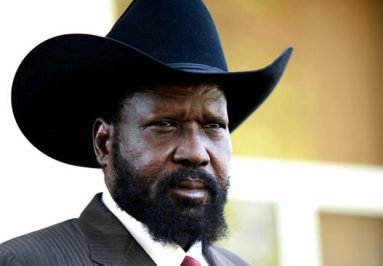S. Sudan’s Kiir directs governors to lead dialogue process
January 23, 2017 (JUBA) – The South Sudanese president, Salva Kiir has directed state governors to lead the national dialogue process in their respective areas for the war to end so that people can live normal lives and the allow the nation to rebuild.

The dialogue, according to the president, should be led by eminent statesmen that are “trusted, genuine and credible.”
“As you [governors] go to your areas, you have a very important task to do. You need to lead this dialogue process. The national dialogue which we have launched is the only way to stop this suffering,” the South Sudan leader said after the newly-appointed governors were sworn-in.
He added, “We need everybody to participate in this [national dialogue] process and it should be from the lower level. We don’t need to start here. This war puts many innocent lives in grave jeopardy”.
The dialogue process, the president stressed, would be inclusive for the world’s youngest nation to end its war.
“If we want to get out of the crisis, there should be no exception to any means that could help us. Everybody should be given the opportunity to participate in the process. This is why I made it open for people living outside to be able to participate in the process”, he added.
According to the South Sudanese leader, the committee for the national dialogue will work with independent experts from Juba-based think tanks such as the Ebony Center, Sudd Institute and Centre for Peace and Development.
The dialogue process will reportedly have a bottom-top approach with the first phase being “grass-roots consultation” to map out grievances unique to each community and the region, the second one will converge regional peace conferences while the final phase will lead to convergence in Juba for the national conference.
“The National Conference shall tackle remaining issues that are not addressed in the sub-national processes, which would have direct bearing on national cohesion,” Kiir said, in what has been described by experts as his first detailed plans to address issues in a tribally divided, war torn country.
Over the years, Kiir said, experiences had shown that South Sudanese can dialogue, citing his previous disagreement with the late John Garang in 2004, return of Riek Machar to ruling party (SPLM) in 2002, the SPLM convention of 1994 and Dinka and Nuer communities’ conference of 1999 as evidences that locally-led peace initiatives work.
President Kiir called for help from the international community and warned citizens against hate speeches targeting Americans and the United Nations.
(ST)
